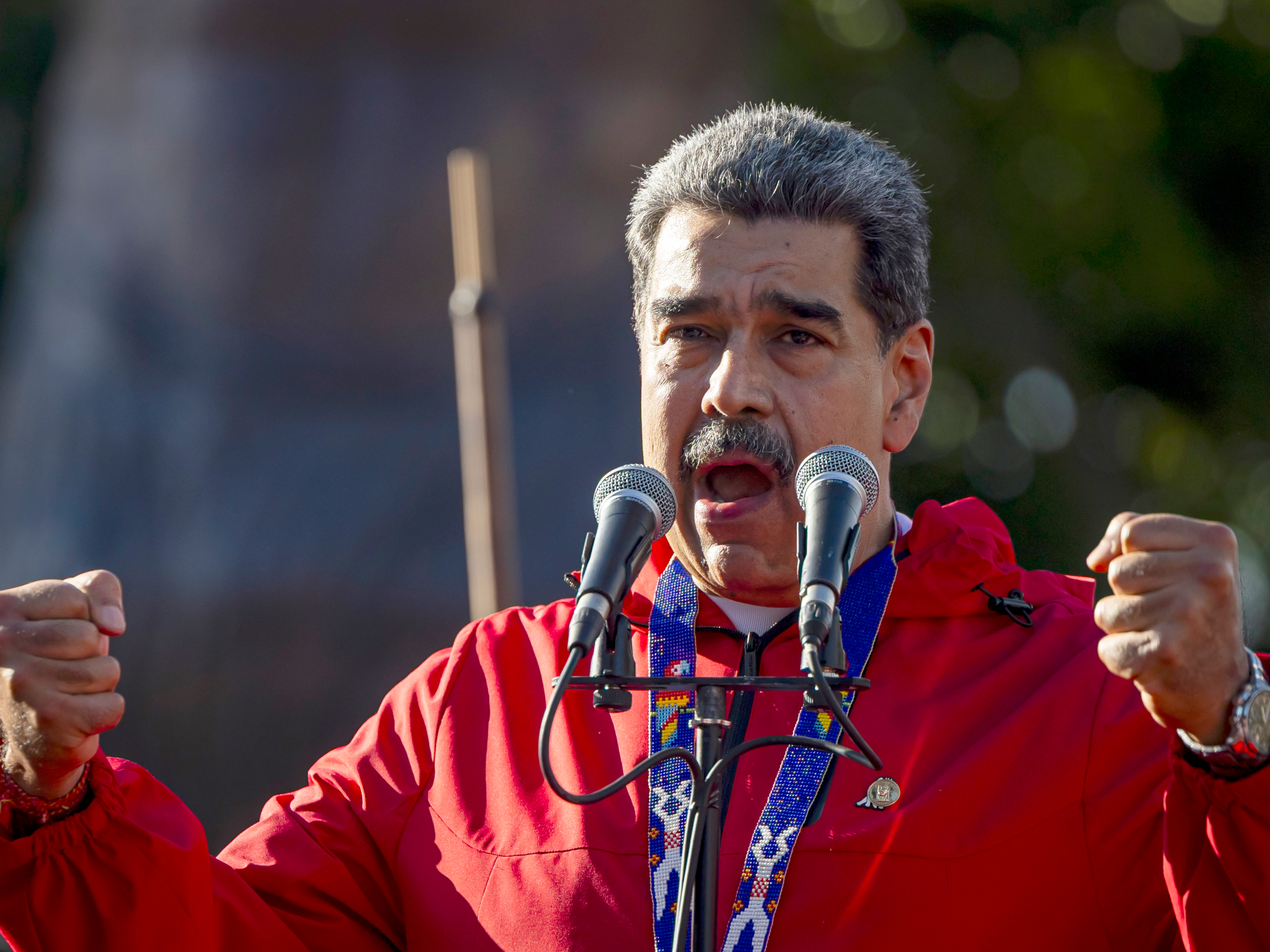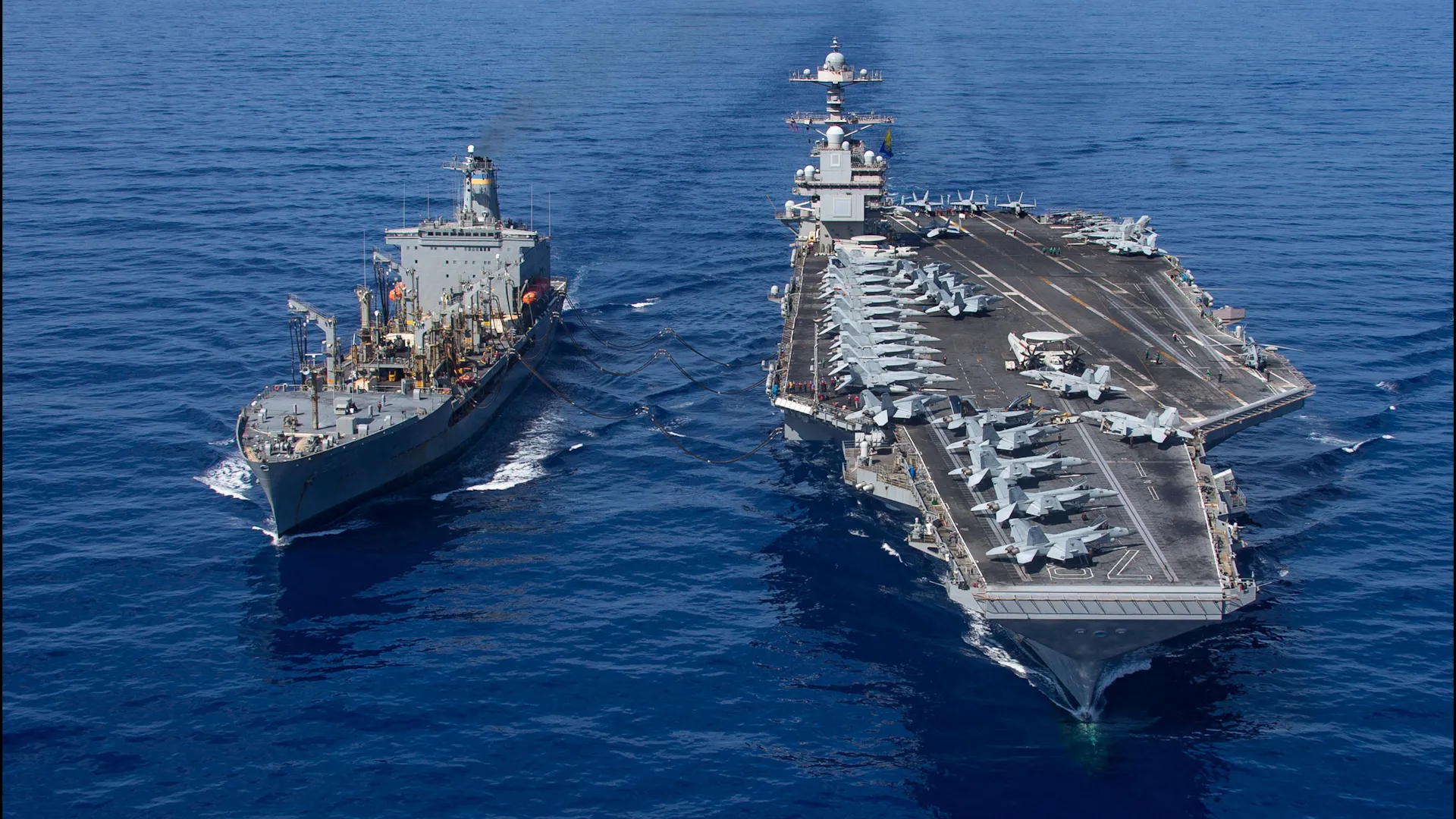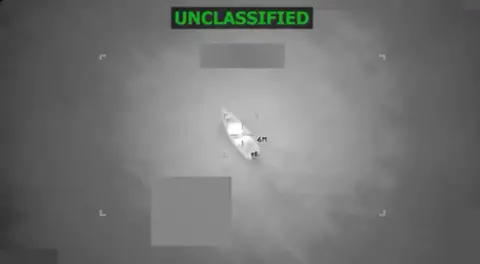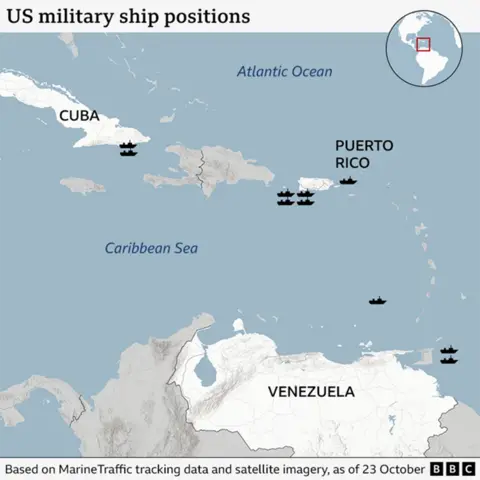Venezuela’s Maduro says the US is ‘fabricating’ a war against him | Donald Trump News
Venezuela’s President Nicolas Maduro has said the United States government is “fabricating” a war against him as Washington sent the world’s biggest warship towards the South American country.
It signals a major escalation of the US’s military presence in the region amid speculation of an attempt to overthrow the Venezuelan government.
Recommended Stories
list of 3 itemsend of list
Maduro said in a national broadcast on Friday night that US President Donald Trump’s administration is “fabricating a new eternal war” as the aircraft carrier USS Gerald R Ford, which can host up to 90 aeroplanes and attack helicopters, moves closer to Venezuela.
Trump has accused him, without providing evidence, of being the leader of the organised crime gang Tren de Aragua.
“They are fabricating an extravagant narrative, a vulgar, criminal and totally fake one,” Maduro added. “Venezuela is a country that does not produce cocaine leaves.”
Tren de Aragua, which traces its roots to a Venezuelan prison, is not known for having a big role in global drug trafficking but for its involvement in contract killings, extortion and people smuggling.
Maduro was widely accused of stealing last year’s election in Venezuela, and countries, including the US, have called for him to go.
Tensions are mounting in the region, with Trump saying he has authorised CIA operations in Venezuela and that he is considering ground attacks against alleged drug cartels in the Caribbean country.
Since September 2, US forces have bombed 10 boats, with eight of the attacks occurring in the Caribbean, for their role in allegedly trafficking drugs into the US. At least 43 people have died in the attacks.
United Nations officials and scholars of international law have said that the strikes are in clear violation of US and international law and amount to extrajudicial executions.
Venezuela’s Defence Minister Vladimir Padrino Lopez said Saturday the country is conducting military exercises to protect its coast against any potential “covert operations”.
“We are conducting an exercise that began 72 hours ago, a coastal defence exercise … to protect ourselves not only from large-scale military threats but also to protect ourselves from drug trafficking, terrorist threats and covert operations that aim to destabilise the country internally,” Padrino said.
Venezuelan state television showed images of military personnel deployed in nine coastal states and a member of Maduro’s civilian militia carrying a Russian Igla-S shoulder-fired anti-aircraft missile.
“CIA is present not only in Venezuela but everywhere in the world,” Padrino said. “They may deploy countless CIA-affiliated units in covert operations from any part of the nation, but any attempt will fail.”
Since August, Washington has deployed a fleet of eight US Navy ships, 10 F-35 warplanes and a nuclear-powered submarine for anti-drug operations, but Caracas maintains these manoeuvres mask a plan to overthrow the Venezuelan government.
Maduro said on Saturday he had started legal proceedings to revoke the citizenship and cancel the passport of opposition politician Leopoldo Lopez, whom he accuses of egging on an invasion.
Lopez, a well-known Venezuelan opposition figure who has been exiled in Spain since 2020, has publicly expressed his support for the deployment of US ships in the Caribbean and attacks on suspected drug trafficking vessels.
The opposition leader reacted on his X account, dismissing the move because “according to the Constitution, no Venezuelan born in Venezuela can have their nationality revoked.” He once more expressed support for a US military deployment and military actions in the country.
Lopez spent more than three years in a military prison after participating in antigovernment protests in 2014. He was sentenced to more than 13 years in prison on charges of “instigation and conspiracy to commit a crime”.
He was later granted house arrest and, after being released by a group of military personnel during a political crisis in Venezuela, left the country in 2020.
In the meantime, the US has also put Colombia’s leadership in its crosshairs.
The US Department of the Treasury slapped sanctions on Colombian President Gustavo Petro, his family and the South American country’s interior minister, Armando Benedetti.
Friday’s decision marked a significant escalation in the ongoing feud between the left-wing Petro and his US counterpart, the right-wing Trump.
In a statement, the US Treasury accused Petro of failing to rein in Colombia’s cocaine industry and of shielding criminal groups from accountability.
The Treasury cited Petro’s “Total Peace” plan, an initiative designed to bring an end to Colombia’s six-decade-long internal conflict through negotiations with armed rebels and criminal organisations.
Petro, a prolific social media user, quickly shot back that the Treasury’s decision was the culmination of longstanding Republican threats, including from US Senator Bernie Moreno, a critic of his presidency.





